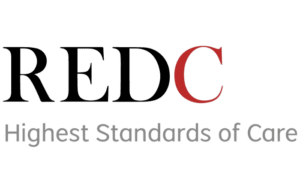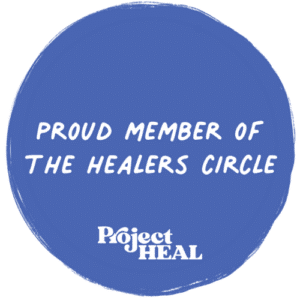Home | What We Treat | Other Specified Feeding or Eating Disorder (OSFED)
What We Treat
Other Specified Feeding or Eating Disorder
Home | What We Treat | Other Specified Feeding or Eating Disorder (OSFED)
What We Treat
Other Specified Feeding or Eating Disorder (OSFED)
Individuals with OSFED exhibit symptoms of one or more eating disorders without fitting a single diagnosis. Despite this, OSFED is a serious condition that can lead to significant emotional distress and disruptions in daily life.
Treatment for OSFED at Aster Springs
Other specified feeding or eating disorder (OSFED) is a complex condition requiring specialized care. Aster Springs provides evidence-based treatment, including CBT, DBT, and nutritional counseling, to address underlying causes and behaviors. Our expert team helps clients heal their relationship with food and body image, fostering lasting recovery in a supportive environment.
About OSFED
- Previously known as eating disorder not otherwise specified, or EDNOS, what we now refer to as other specified feeding or eating disorders (OSFED) can be just as serious — or even as deadly — as other eating disorders.
- OSFED was developed to encompass those who did not meet strict diagnostic criteria for anorexia, bulimia, or binge eating disorder but still had a significant eating disorder.
- One study reported by NEDA found that approximately 33% of the deaths attributed to eating disorders were associated with OSFED, higher than any other type of eating disorder.
OSFED is the most common eating disorder, affecting approximately 3.8% of women and 1.6% of men at some point in their lives.
FAQs
Other specified feeding or eating disorder
What is OSFED?
OSFED is a serious and often overlooked eating disorder category that includes individuals who do not meet the full diagnostic criteria for anorexia nervosa, bulimia nervosa, or binge eating disorder but still experience significant disordered eating behaviors.
Despite misconceptions, OSFED is not a less severe diagnosis — research shows individuals with OSFED face similar hospitalization rates, eating disorder symptom severity, and mortality risks as those with anorexia, bulimia, or binge eating disorder. In fact, a study reported by NEDA found that approximately 33% of deaths attributed to eating disorders were linked to OSFED, highlighting the need for early intervention and specialized treatment.
Recognizing the signs of OSFED and seeking professional care is critical to preventing long-term physical and psychological complications.
What is purging disorder?
Purging disorder is a serious eating disorder classified under OSFED. Unlike bulimia nervosa, individuals with purging disorder engage in self-induced vomiting, laxative misuse, diuretics, or enemas to control weight or body shape without recurrent binge eating episodes. This disorder is driven by an intense preoccupation with weight and body image, and those affected may be underweight, at a “normal” weight, or overweight.
Purging can lead to severe medical complications, including electrolyte imbalances, heart irregularities, and gastrointestinal damage. Purging disorder is a life-threatening condition requiring professional treatment to address both the physical and psychological consequences. Seeking professional eating disorder care is essential for long-term recovery.
What is atypical anorexia?
Atypical anorexia is another serious eating disorder classified under OSFED. Individuals with atypical anorexia exhibit all the clinical symptoms of anorexia nervosa — intense food restriction, an extreme fear of weight gain, and a distorted body image — but do not meet the low-weight criteria for an anorexia diagnosis.
Despite this, the medical and psychological effects can be just as severe, including malnutrition, electrolyte imbalances, heart complications, anxiety, and depression. According to the National Eating Disorders Association (NEDA), research shows no significant difference in health risks between anorexia and atypical anorexia, underscoring the need for early intervention and specialized treatment.
Levels of Care
Comprehensive treatment options for every stage of eating disorder recovery
Our Treatment Approach
At Aster Springs, we address the underlying issues and experiences contributing to eating disorders while challenging the thoughts and behaviors that stand in the way of lasting recovery.
Take the next step at Aster Springs.
Whether you’re seeking treatment for the first time or returning after previous care, the team at Aster Springs is here to help you navigate this stage in your recovery journey.
Your privacy is our priority. All communication is completely confidential.











